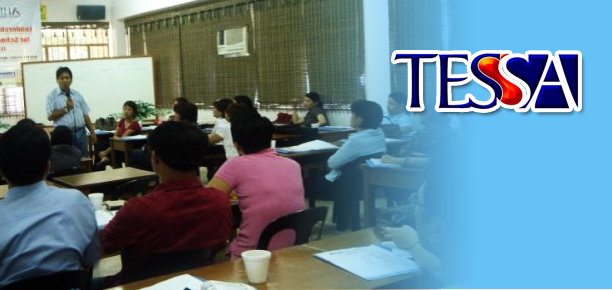A modular program to help teachers improve and gain confidence in their teaching skills for better student performance. We believe that direct experience strengthens concepts learned, thus all activities are supplemented by the participants’ giving examples from their own experience and by class demonstrations that aim to make connections to the real world and put studies in context.
Direct Classroom Experiences—A Teaching Strategy
This module focuses on the components of teaching strategy and how these components influence teaching. Discussions are centered on the various teaching methods with provisions for participants to create appropriate methods to their classroom instruction. Strategies utilized are group sharing, demonstrations, and individual reflections.
Curriculum Development and Instructional Planning
Curriculum development and planning starts with understanding the key goals of the organization and how the employees’ behavior and actions can positively support reaching those goals. This module guides participants in creating a well-planned curriculum that addresses the overall learning needs, goals, and objectives. It also discusses developing and validating strategies for effective evaluation of all instruction and instructional materials.
Design of Instructional Materials
This module presents the various types of instructional materials that are adaptable in different classroom situations. The participants are guided into preparing their own instructional materials that are student-friendly, resource-efficient and effective.
Responsible Classroom Management
This module discusses the different strategies for responsible classroom management, focusing on techniques to prevent disruptive behavior. It highlights the positive teacher behaviors which lead to improved student learning. Participants are guided to design an effective class discipline plan.
Questioning and Understanding to Improve Learning and Thinking
This module is designed to assist teachers in the use of appropriate questioning techniques that facilitate critical and creative thinking. Activities are provided to equip teachers with the skills to train students to create, evaluate, summarize, and analyze.
Subject-Specific Teaching Techniques: Communication Arts
This module touches on the effective ways of teaching Communication Arts, focusing on the new trends of handling this subject and assessing student performance.
Subject-Specific Teaching Techniques: Science and Technology
This module assists the teachers in developing strategies that will strengthen the students’ scientific literacy, skills of scientific inquiry, hands-on investigation, and experimentation.
Subject-Specific Teaching Techniques: Mathematics
This module guides the teachers in developing strategies that will stimulate the students’ interests and skills in Mathematics through their participative and interactive experiences.
Addressing the Learning Styles of Students
This module is designed with the realization that students are unique in many ways, including the way they learn. Classroom instruction must be suited to the students’ learning styles. The teachers are guided to use a variety of instructional and motivational strategies that take into account the learning styles of students.
Curriculum Integration
This module discusses the benefits of curriculum integration and its effects on students’ performance. It focuses on the sense of connectedness nurtured by an integrated curriculum that enables students to explore connections between disciplines and their everyday existence. Participants are guided on how to create curriculum integration in a sample lesson.
Other Modules
Integrating Technology in Today’s Curriculum
Enhancing English Communication in the Classroom
Communication Strategies and Skills

